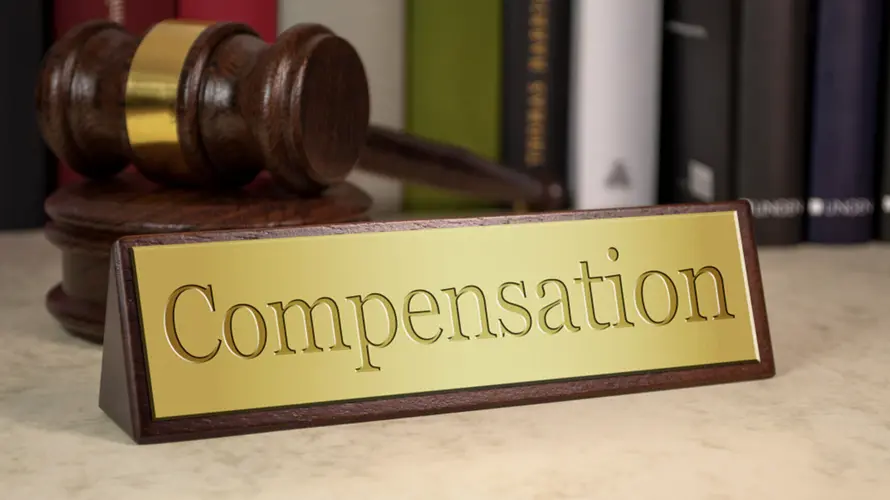Georgia Workers’ Compensation and Third-Party Claims: Maximizing Your Recovery
1. Understanding Workers’ Compensation in Georgia
In Georgia, workers’ compensation laws aim to provide financial protection for employees who suffer work-related injuries. These laws ensure that injured workers receive medical treatment and compensation for lost wages while protecting employers from costly lawsuits.
Workers’ compensation benefits provide essential support to injured employees, covering medical expenses, rehabilitation costs, and a portion of lost wages. However, it’s important to note that workers’ compensation has its limitations.
2. Unveiling Third-Party Claims in Workers’ Compensation
In certain situations, injured workers may be eligible to pursue additional compensation beyond what workers’ compensation provides. These are known as third-party claims, which arise when someone other than the employer or a co-worker is responsible for the injuries sustained on the job.
It’s crucial to differentiate between workers’ compensation claims and third-party claims. While workers’ compensation benefits are available to all employees who are injured on the job, third-party claims require the involvement of another party who caused or contributed to the injuries.
3. Determining When a Third-Party Claim is Applicable
A variety of circumstances can give rise to a third-party claim. For example, if a worker is injured in a car accident while driving for work and the other driver is at fault, the injured worker may be eligible to pursue a third-party claim against the negligent driver.
To assess whether a third-party claim is applicable, several factors come into play, such as the nature of the accident, the extent of the injuries, and the party responsible for the incident. Consulting with a knowledgeable attorney can help determine the viability of a third-party claim in your specific case.
4. The Importance of Pursuing Additional Compensation
While workers’ compensation benefits provide immediate financial assistance, they may not fully cover all the damages resulting from a workplace injury. Pursuing a third-party claim can offer additional compensation to cover medical bills, lost wages, pain and suffering, and other damages not addressed by workers’ compensation.
By filing a third-party claim, injured workers can maximize their recovery and ensure that all necessary expenses and losses are properly compensated. This can alleviate the financial burden caused by a work-related injury and provide a more comprehensive means of recovery.
5. Identifying Potential Responsible Third Parties
In third-party claims, it’s essential to identify the parties other than the employer or co-workers who may share liability for the injuries sustained. These parties can include contractors, manufacturers, property owners, or other individuals or entities whose negligence or wrongful actions contributed to the accident.
Establishing negligence or liability in a third-party claim is crucial. Evidence such as accident reports, photographs, witness statements, and expert opinions may be necessary to demonstrate the fault of the responsible third party.

6. Gathering Evidence for a Strong Third-Party Claim
To build a strong case for a third-party claim, gathering and preserving evidence is of utmost importance. Detailed documentation of the accident scene, medical records, and any other relevant documents can significantly strengthen your claim.
Expert testimonies can also play a valuable role in third-party claims. Professionals such as accident reconstruction experts, medical experts, or vocational experts can provide crucial insights and expert opinions to substantiate your claim.
7. Navigating The Legal Process for Third-Party Claims
In Georgia, there is a statute of limitations within which a third-party claim must be filed. It’s essential to be aware of the applicable deadlines and legal requirements to ensure your claim is valid.
Navigating the legal process for a third-party claim can be complex, and having an experienced attorney by your side is crucial. An attorney can guide you through the intricacies of the legal system, handle negotiations with insurance companies, and advocate for your rights, maximizing your chances of a successful claim.
8. Maximizing Your Recovery from Third-Party Claims
To maximize your recovery from a third-party claim, it’s vital to accurately calculate the damages suffered. This may include medical expenses, future medical costs, lost wages, reduced earning capacity, and pain and suffering.
Negotiating settlements from third-party claims can be a formidable task. Employing effective legal strategies, such as presenting persuasive arguments and leveraging expert opinions, can strengthen your position and enhance your potential compensation.
9. Important Considerations and Pitfalls to Avoid
When pursuing a third-party claim, it’s essential to adhere to legal requirements and deadlines. Failure to comply with these regulations could jeopardize your claim and limit your ability to recover compensation.
Common mistakes in third-party claims include providing inconsistent statements, missing crucial evidence, or accepting initial settlement offers without proper evaluation. Avoiding these pitfalls can help you build a strong case and ensure you receive the compensation you deserve.
10. The Benefits of Consulting with an Attorney
Consulting with an attorney specializing in workers’ compensation and third-party claims is highly recommended. An attorney can provide expert guidance throughout the process, protect your rights, and help maximize your recovery.
With their knowledge of the legal landscape, an attorney can navigate the complexities of the legal system, negotiate with insurance companies, and advocate on your behalf. This support ensures that you have the best chance of obtaining the compensation you are entitled to.
11. Case Studies: Successful Third-Party Claims in Georgia
Examining past successful third-party claim cases can provide valuable insights and learnings. These case studies illustrate the potential for recovery, showcase effective strategies, and inspire injured workers pursuing their own claims.
Learning from these cases can help you understand the nuances and intricacies involved in building a strong third-party claim, enabling you to strengthen your own case.
12. Additional Resources for Injured Workers
Various support services and resources are available to assist injured workers throughout their recovery process. Organizations focused on workers’ rights, educational materials, and community resources can provide valuable assistance and information to ensure your rights are protected.
By tapping into these resources and educating yourself about your rights and options, you can navigate the complexities of workers’ compensation and third-party claims more effectively.
